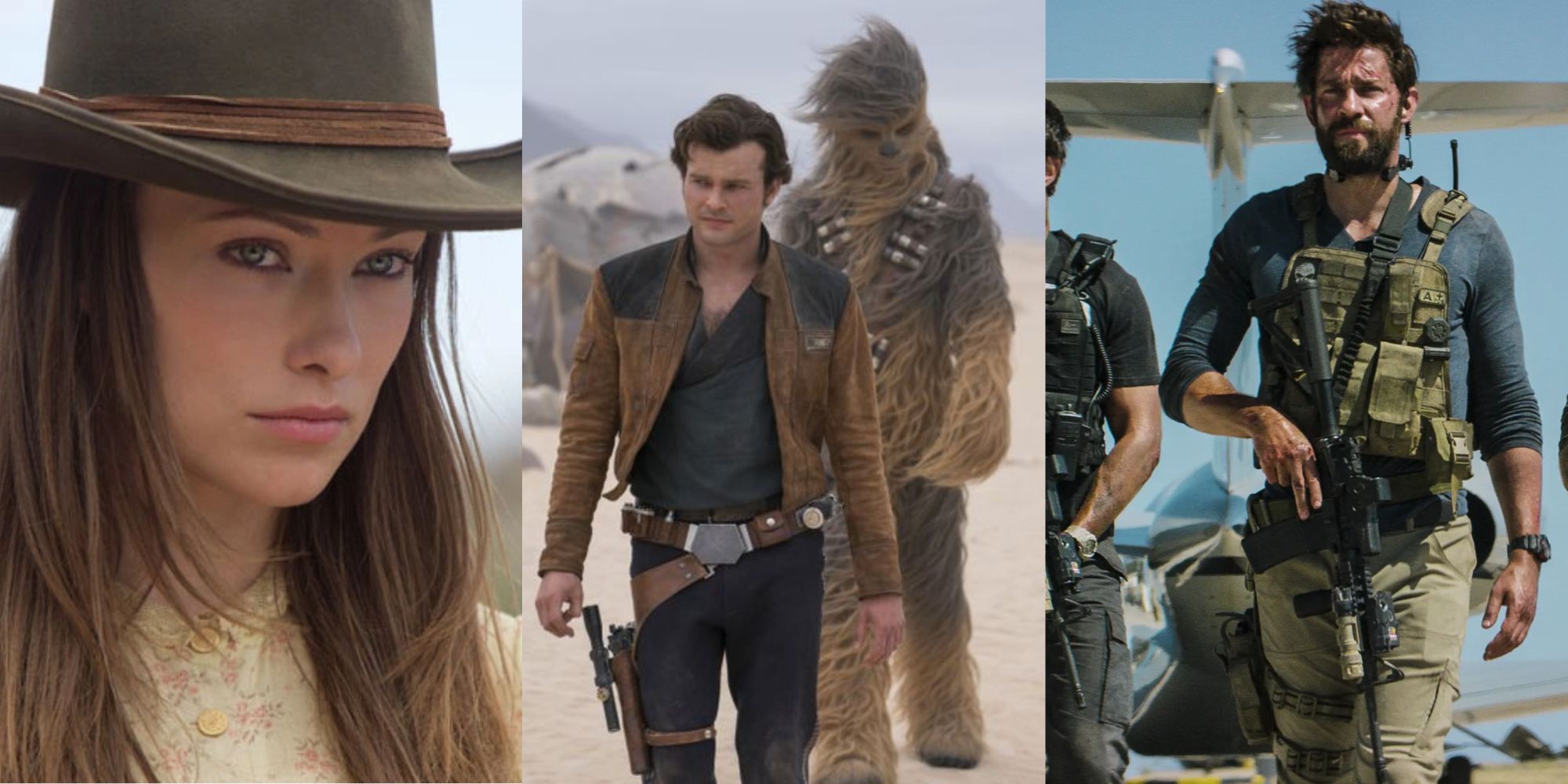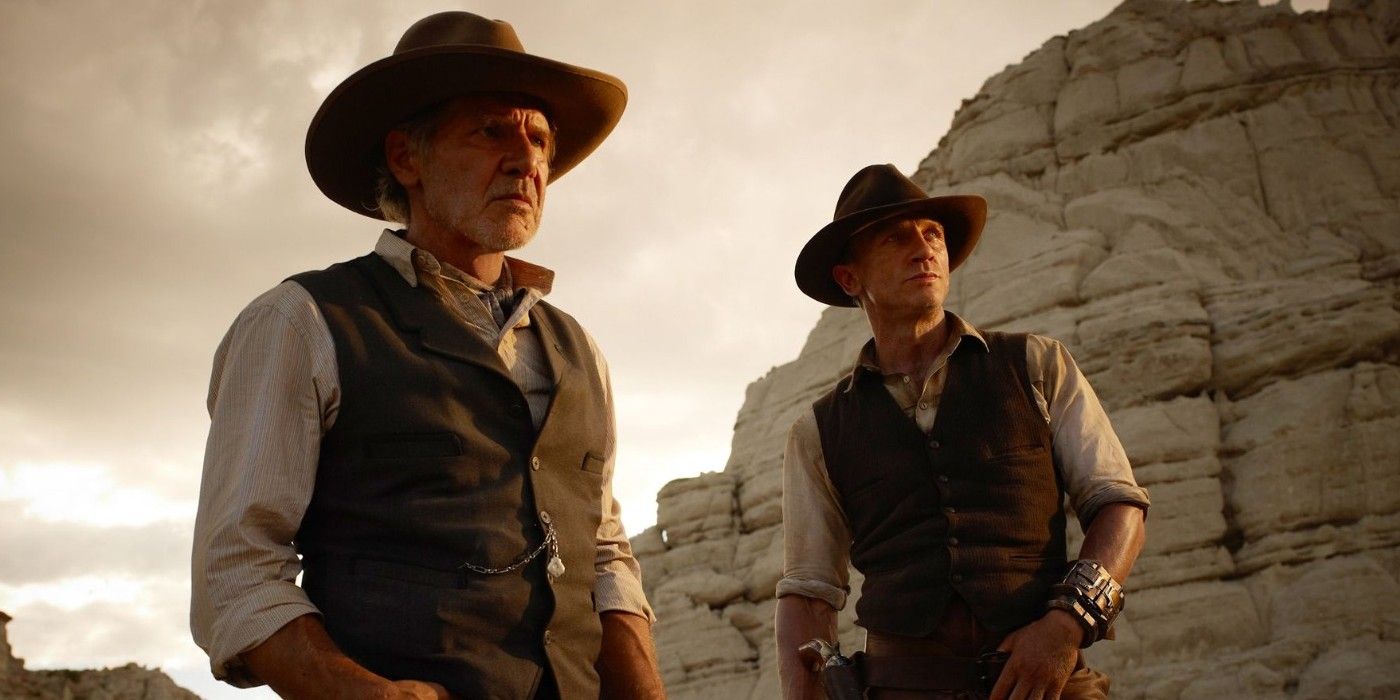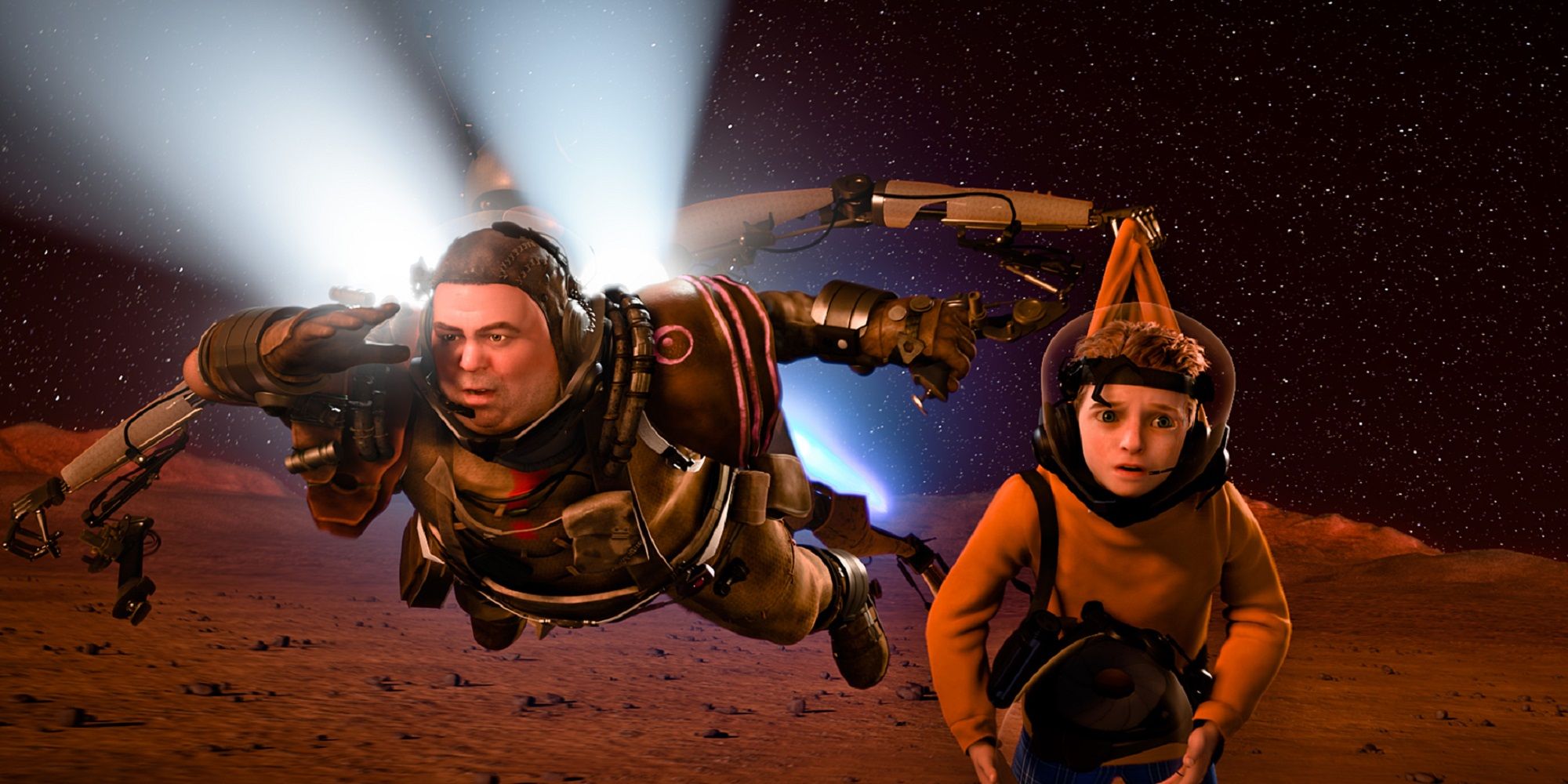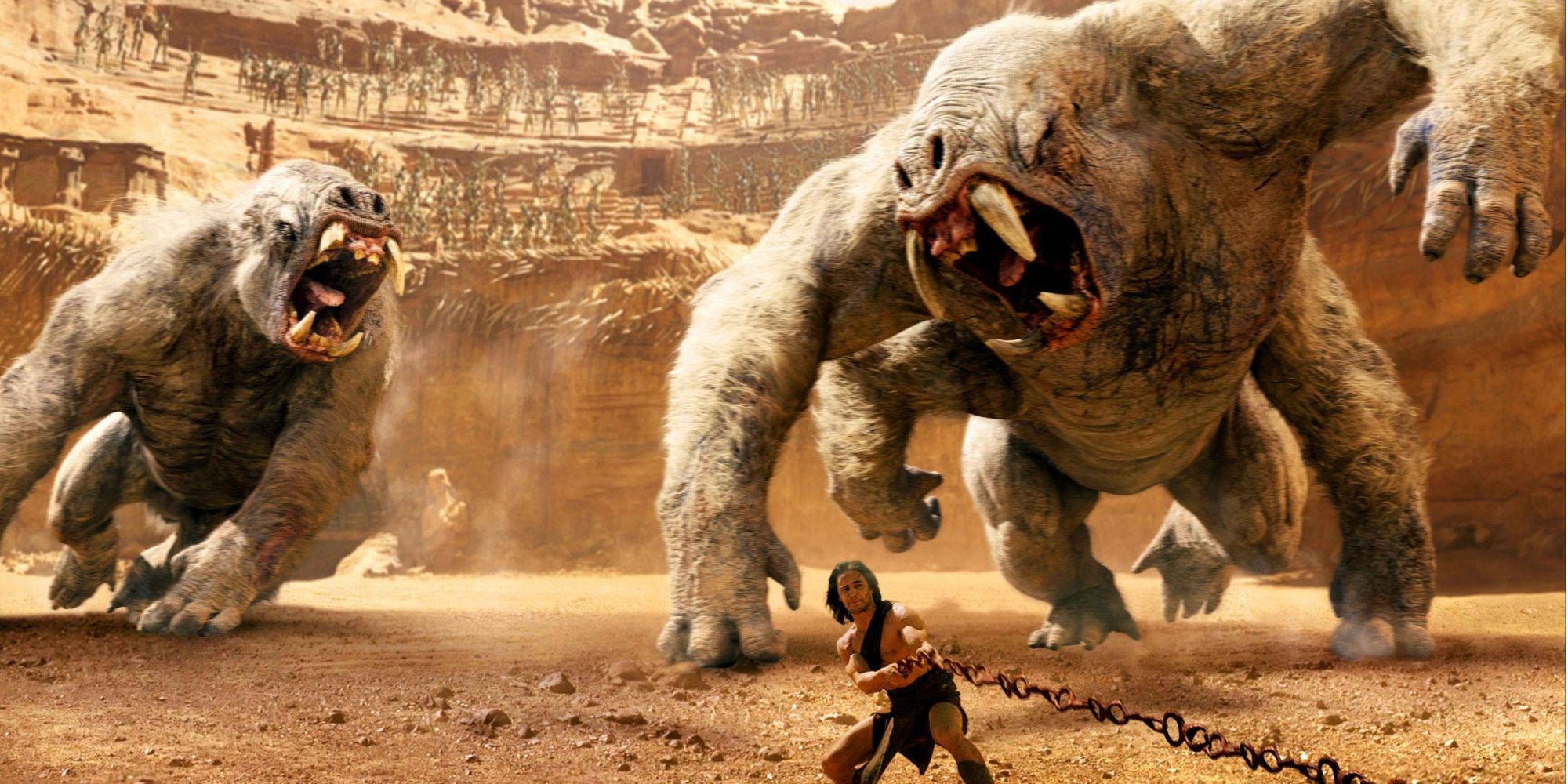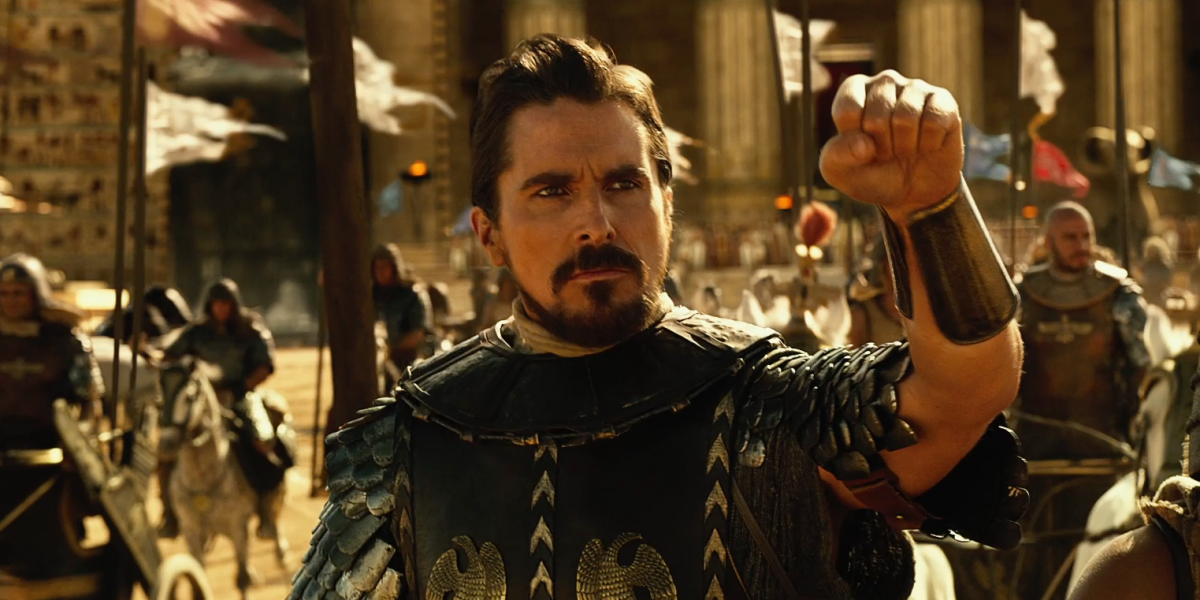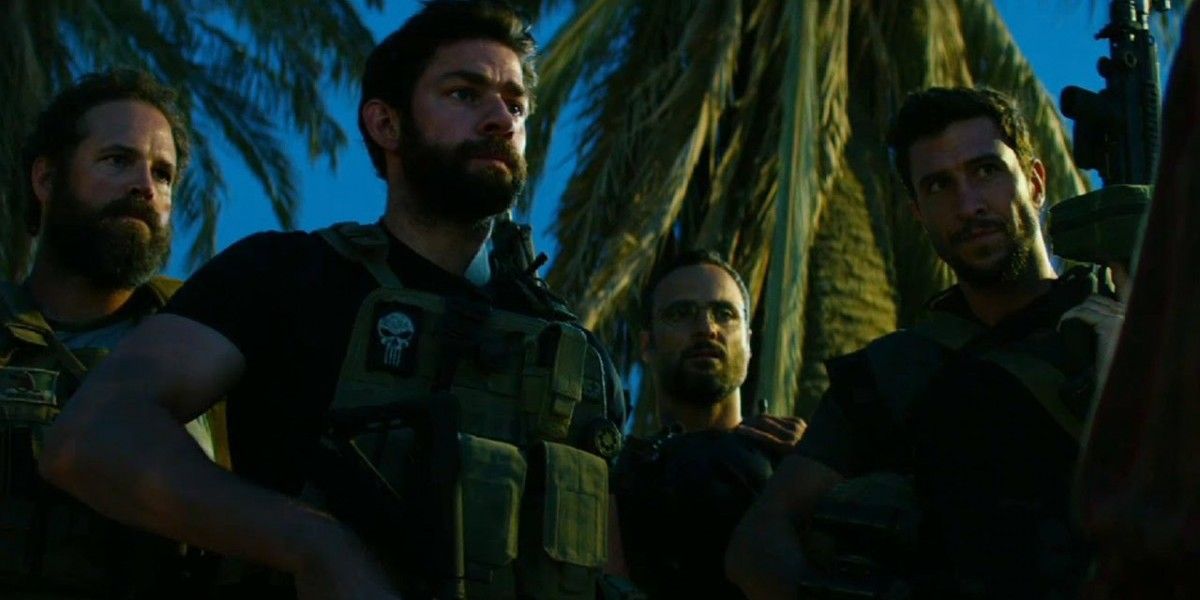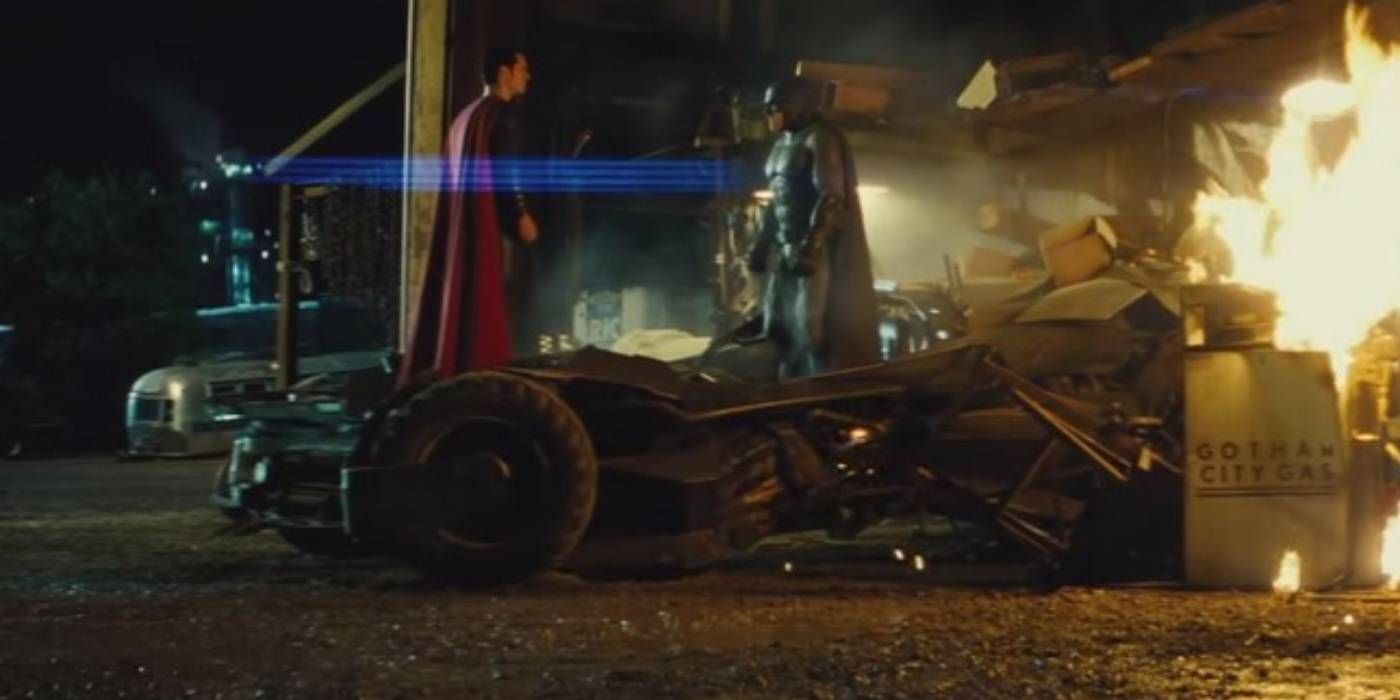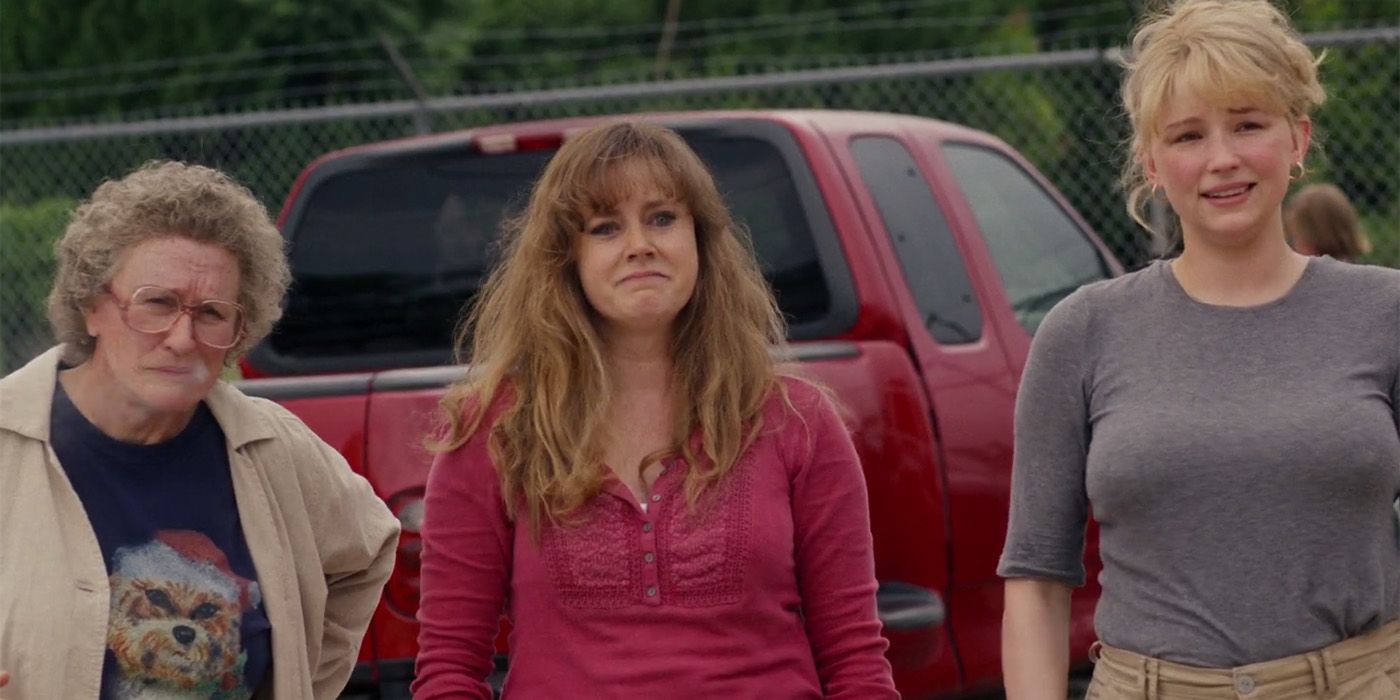Sometimes a director releases a project they've worked incredibly hard on, but audiences don't respond as the auteur hoped, and they're vocal with their defense, e.g. Rian Johnson and Star Wars Episode VIII: The Last Jedi. Sometimes the audience is "right" (time reveals a film's true quality), and sometimes the filmmaker is, but one thing is certain: every divisive film still has an audience.
Usually, that audience is quite vocal, so why shouldn't the director be? When months of hard work go into something, the director is going to want to see the project received fairly and with even tempers. Instead, the project gets eviscerated for the bad while the good becomes an afterthought. Every big director has experienced it; some have fought back.
Jon Favreau - Cowboys & Aliens (2011)
Before Jon Favreau created some of Star Wars' best new intergalactic characters, he was dealing with extraterrestrials of a different type in Cowboys & Aliens. The film clocked over $100 million domestic (per Box Office Mojo), but it still wasn't considered a hit, as its budget was astronomical (including a high-profile cast of stars including Harrison Ford, Daniel Craig, Olivia Wilde, Paul Dano, and Sam Rockwell).
Cinemablend interviewed Favreau after the film failed to meet expectations. Of the film's failure, the director posited that he was "completely flummoxed when it's not exactly what [he] hoped it would be." He continued, "With filmmaking, you have to be underwater with this thing: You're pitching it, then making it, then promoting...With Cowboys & Aliens, I was really bummed out." It's obvious that Favreau had faith in his film and its quality, which made the financial disappointment all the worse.
Simon Wells - Mars Needs Moms (2011)
If Disney has had a major animated film outright bomb, it was beyond a shadow of a doubt Mars Needs Moms. The film opened in March 2011, and while it did face some competition from the underrated Rango's second weekend, the film's opening of $6.9 million (per Box Office Mojo) was still paltry at best. And, unfortunately, the $150 million film never recovered.
A lot of factors were working against the film's financial prospects, not the least of all being its frequent dip into the Polar Express-style "Uncanny Valley" (Robert Zemeckis, director of Polar Express and Beowulf, served as producer). Director Simon Wells told Animation City: "My last picture...is actually one I am very proud of, even though it did not perform at the box office. I still sincerely believe in the heart of the film, and had the most fun on it of all the pictures I have been involved in."
Andrew Stanton - John Carter (2012)
John Carter is a fun fact-filled box office bomb that's seen its reputation grow in stature a bit over the years. It's still not seen as a success of any sort, but it's precisely the kind of film that finds a second life on Disney+. It was a rare flop for Disney, and one of its most prolific failures, live-action or animated.
Director Andrew Stanton spoke at San Diego Comic Con (via Collider) about all he had planned for sequels. The intended scope was epic and is fully indicative of the fact that the director had every bit of confidence in his work. And, poor reaction aside, the film is fairly well-crafted and every bit as solid a piece of world-building as Avatar.
Ridley Scott - Exodus: Gods And Kings (2014)
Ridley Scott's Exodus: Gods and Kings isn't one of Christian Bale's best movies, but its negative reputation is perhaps a bit exaggerated. It's an ambitious film that misses the mark from casting on down, but it was a sign that Scott was getting some renewed energy, which would be proven with the following year's The Martian. There are also great (if not also controversially-cast) performances from both Christian Bale and Joel Edgerton.
At the time of its premiere, both Bale and Scott defended the film's "whitewashed" casting. According to The Guardian, Bale both defended Scott and "appeared to suggest audience habits would need to change..." for actors of Middle Eastern descent to be cast in such major roles. The film ultimately failed at the box office, but it's not entirely the casting that could or should be blamed. For one, there's a massive budget attributed to a biblical motion picture that's geared neither towards the strictly religious group nor the average cinema goer. In essence, it was a film without a concrete audience, and even its appropriate Holiday Season release date couldn't save it from being an afterthought.
Michael Bay - 13 Hours (2016)
13 Hours lacks the majority of Michael Bay's trademarks as a filmmaker, yet it feels like his most personal project to date. Bay has posited that he wasn't trying to make an action film, he was trying to respectfully tell a difficult piece of history...yet audiences still were mixed at best. The main source of criticism was the very thing Bay said he didn't do. Critics and audiences saw a piece of macho entertainment, more in line with the remainder of Bay's filmography than anything he intended.
The director responded to this on Fox News: "Here's the thing...the politics got in the way of this great human story that happened, and this is really to honor these types of men that do this every day...." The criticisms are closer to the truth than the defense as, regardless of reaction, 13 Hours strays from history far more often than it adheres to it.
Zack Snyder - Batman v Superman: Dawn of Justice (2016)
Zack Snyder's Batman v Superman: Dawn of Justice was a massively-hyped event film that made a ton of money...over its opening weekend. Then it sunk, fast. The film marked the death knell of the Snyder DCEU practically just after it had begun and was a sign of the even more problematic production of Justice League.
Snyder has spoken out in defense of the film, though, e.g. to I MINUTEMEN. Specifically, the "Martha" scene: "...that concept is central to the film. I mean, it's 100% the linchpin that holds the entire movie together. I think it's indicative of the way that Batman v Superman was received that its central tenant was sort of belittled and made fun of...."
Ron Howard - Hillbilly Elegy (2020)
Netflix's Hillbilly Elegy was initially positioned as Oscar bait. Unfortunately, it was ultimately lambasted by critics and Netflix subscribers alike, with almost all of them finding it to be an outright unpleasant experience. The film is an adaptation of J.D. Vance's memoir of the same name, which was itself rather dour, but viewers ended up being far less forgiving than readers.
Director Ron Howard, however, felt it wasn't so much about the film as it was about larger issues. On CBS This Morning (which was quoted by the Hollywood Reporter), he stated that he believes critics were "looking at political thematics that they may or may not disagree with that, honestly, are not really reflected or are not front and center in this story."

